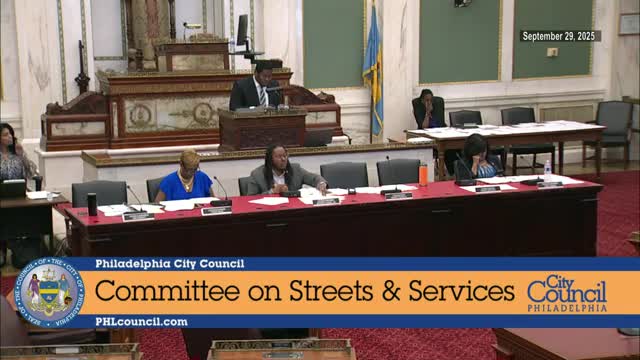Article not found
This article is no longer available. But don't worry—we've gathered other articles that discuss the same topic.
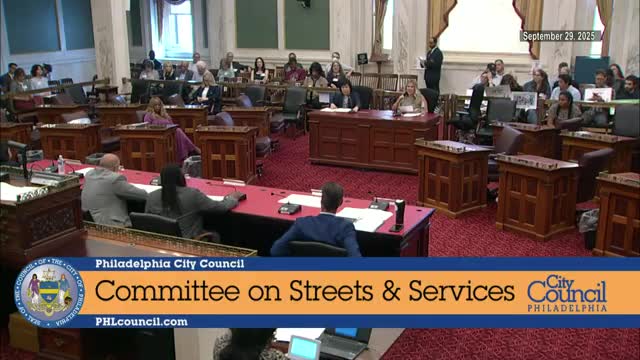
Committee hears administration support for extending compliance period on vacating portion of Sloane Street
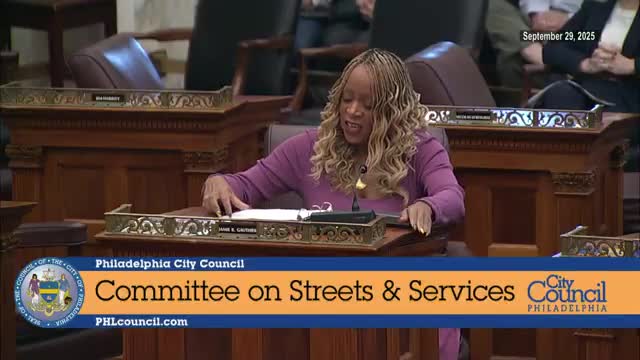
Council hears testimony supporting parking, loading changes for 40th Street safety project
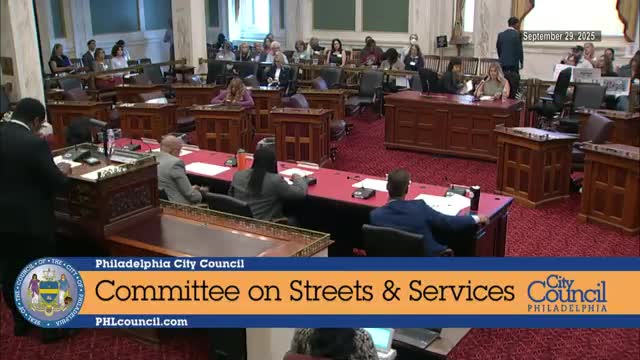
Streets, planning back extending deadline for Ridge Avenue widening tied to Wissahickon Transportation Center
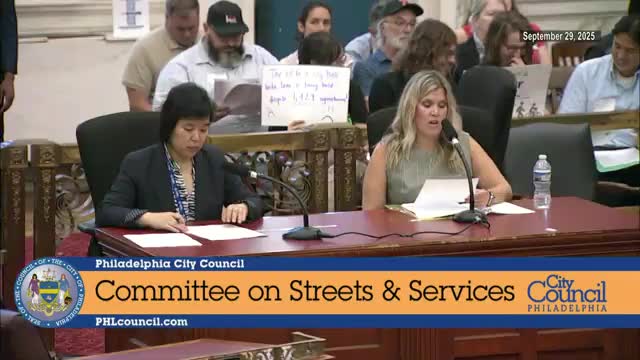
Committee reviews multiple sidewalk‑cafe and encroachment requests; Streets and Planning raise no objections
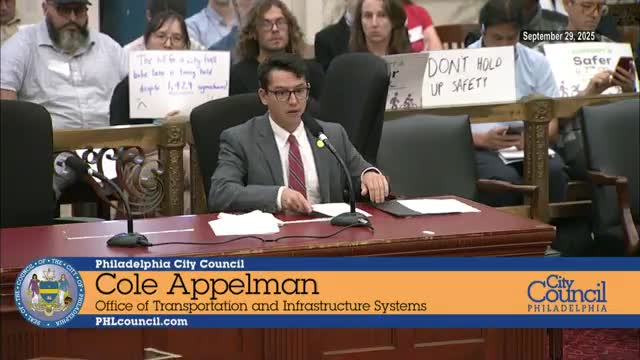
Administration, advocates urge committee to expand automated speed cameras to three additional state routes
